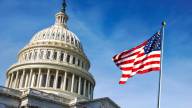
The fall of the Soviet Union in 1991 marked a monumental shift in global politics and economics. Russia, emerging from the shadow of communism, faced the daunting task of restructuring its economy. While Naomi Klein's "The Shock Doctrine" critically examines this transition, this article will delve into a conservative perspective on social democracy, contrasting my views with those of most liberals and authoritarians.
The Challenges of Shock Therapy
The rapid implementation of neoliberal policies, often referred to as "shock therapy," led to severe economic and social disruptions in Russia. These reforms included rapid privatization of state-owned enterprises, deregulation, and price liberalization. While the intent was to swiftly transition from a centrally planned economy to a market-based one, the abrupt changes caused hyperinflation, massive unemployment, and a significant drop in living standards for most of the Russian population.
From my conservative standpoint, the issue was not the pursuit of market reforms but rather the speed and lack of preparation. Economic transitions must consider a society's specific context and needs. While I agree with the need for economic liberalization, a more gradual approach mitigated the social costs and allowed a smoother transition.
The Role of Personal Initiative
A key point of divergence between my beliefs and those of many liberals is the role of personal initiative. While liberals often focus on extensive social safety nets and government intervention, I emphasize the importance of maintaining personal initiative and responsibility. Social democracy, in my view, should provide opportunities and support for individuals to succeed rather than fostering dependency.
While flawed in execution, the shock therapy in Russia highlighted the potential for market-oriented reforms to stimulate economic activity. However, for such reforms to succeed, they must be accompanied by policies encouraging personal initiative and entrepreneurship. This balance is crucial for sustainable economic growth and social progress.
Avoiding Authoritarianism
Another critical distinction is my stance against authoritarianism, whether right-wing or left-wing. Approximately 25-30% of the population prefers authoritarianism, valuing the perception of a robust and paternalistic leader. However, authoritarian regimes often restrict personal freedoms and stifle initiative, which are antithetical to my beliefs.
Most people can live under authoritarian regimes as long as they conform and keep criticism to a minimum. However, the long-term consequences of authoritarianism can be detrimental to individual liberties and democratic governance. Successful authoritarian leaders understand the limits of their control and do not push beyond what is tolerable. This pragmatic approach allows them to maintain power but comes at the cost of personal freedom and initiative.
Social Democracy and Long-Term Goals
The challenge is to achieve the benefits of social democracy without undermining personal initiative. This involves balancing market mechanisms with strong social safety nets and regulatory frameworks. A long-term approach is essential, focusing on sustainable development and inclusive growth.
The sudden and poorly managed reforms in Russia led to significant social costs. A more measured approach would have been more effective considering Russian society's specific needs and context. Gradual reforms that build on existing structures and promote personal initiative can create a more stable and prosperous society.
Learning from Russia's Transition
The experience of Russia's transition serves as a cautionary tale. Rapid, poorly managed reforms can lead to severe social disruptions. A conservative approach to social democracy emphasizes the importance of gradual reforms, personal initiative, and long-term sustainability.
The lessons from Russia's transition are clear for those who seek to balance economic growth with social justice. Neoliberal policies must be carefully managed to avoid significant social costs. A more measured approach considering a society's specific needs and context is essential for achieving lasting progress.
While neoliberal policies have their proponents, Russia's transition experience highlights the potential pitfalls of such an approach. Achieving the benefits of social democracy requires a commitment to democratic principles, a focus on personal initiative, and a long-term perspective. Implementing reforms that balance economic growth with social welfare while maintaining individual responsibility and sustainability is challenging.
In contrast to most liberals, I believe in the power of personal initiative and gradual, context-specific reforms. A conservative approach to social democracy can avoid the extremes of authoritarianism and create a stable, prosperous society that supports economic efficiency and social welfare.
The Dangers of a Trump Reelection in 2024
As we approach the 2024 election, the political landscape in the United States hangs in a precarious balance. The prospect of a Trump reelection and a Republican-controlled House and Senate poses significant risks that could shape the nation's future in profound and potentially dangerous ways.
One of the most immediate dangers is the further erosion of democratic norms and institutions. During his previous term, Trump demonstrated a pattern of undermining vital democratic principles, from challenging the integrity of elections to questioning the independence of the judiciary. A second term could encourage these tendencies, leading to an even more pronounced disregard for checks and balances, a cornerstone of American democracy. With a supportive Republican Congress, the executive branch might operate with less oversight, potentially leading to abuses of power and a weakening of democratic accountability.
Civil liberties could also come under increased threat. Trump's administration has shown a tendency to crack down on dissent and protest, exemplified by the aggressive responses to the Black Lives Matter protests in 2020. With a legislative branch aligned with his views, policies restricting freedom of speech, assembly, and press could be more easily enacted and enforced. This could create a chilling effect on political activism and curtail the ability of citizens to challenge governmental actions.
Another area of concern is environmental and climate policy. Trump's previous term saw significant rollbacks of environmental protections and withdrawal from international climate agreements. Returning to office could halt or reverse progress made under the Biden administration, exacerbating the climate crisis at a critical juncture. Legislative support from a Republican Congress would likely facilitate dismantling regulatory frameworks designed to protect natural resources and combat climate change, endangering national and global efforts to address environmental degradation.
Economic policies under the Trump administration, backed by a Republican Congress, could also widen the gap between the wealthy and the poor. Tax cuts favoring the rich and corporations and reductions in social safety nets could exacerbate economic inequality. Additionally, efforts to dismantle or undermine the Affordable Care Act could leave millions without access to healthcare, further entrenching socioeconomic disparities.
Trump's unpredictable and often aggressive approach to foreign policy on the international stage could lead to increased global instability. His administration's withdrawal from international agreements and alliances has strained relationships with key allies. A second term might see a continuation or escalation of these policies, potentially leading to further isolation of the United States on the global stage and increasing the risk of conflicts.
Finally, a Trump reelection with a supportive Congress could deepen social divisions and political polarization within the United States. His rhetoric and policies have often been divisive, pitting different groups against each other. This polarization undermines social cohesion and makes it more challenging to address pressing national issues collaboratively. A political environment characterized by hostility and division can erode the social fabric, making it difficult to achieve unity and progress.
In conclusion, the potential dangers of a Trump reelection and a Republican-controlled US House and Senate in 2024 are multifaceted and far-reaching. From the erosion of democratic norms to increased social division, the implications could profoundly impact the United States' political, social, economic, and environmental landscapes. It is essential for voters to carefully consider these potential outcomes as they make their decisions in the upcoming election.
About the Author
 Robert Jennings is co-publisher of InnerSelf.com with his wife Marie T Russell. He attended the University of Florida, Southern Technical Institute, and the University of Central Florida with studies in real estate, urban development, finance, architectural engineering, and elementary education. He was a member of the US Marine Corps and The US Army having commanded a field artillery battery in Germany. He worked in real estate finance, construction and development for 25 years before starting InnerSelf.com in 1996.
Robert Jennings is co-publisher of InnerSelf.com with his wife Marie T Russell. He attended the University of Florida, Southern Technical Institute, and the University of Central Florida with studies in real estate, urban development, finance, architectural engineering, and elementary education. He was a member of the US Marine Corps and The US Army having commanded a field artillery battery in Germany. He worked in real estate finance, construction and development for 25 years before starting InnerSelf.com in 1996.
InnerSelf is dedicated to sharing information that allows people to make educated and insightful choices in their personal life, for the good of the commons, and for the well-being of the planet. InnerSelf Magazine is in its 30+year of publication in either print (1984-1995) or online as InnerSelf.com. Please support our work.
Creative Commons 4.0
This article is licensed under a Creative Commons Attribution-Share Alike 4.0 License. Attribute the author Robert Jennings, InnerSelf.com. Link back to the article This article originally appeared on InnerSelf.com









